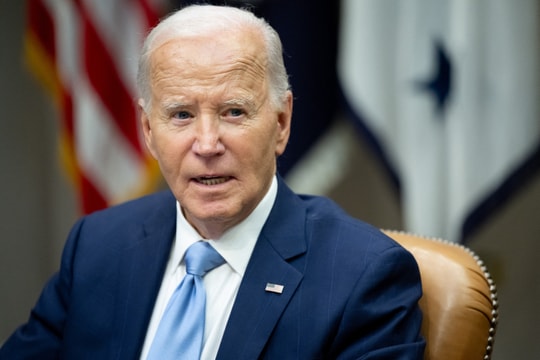Why did world oil prices 'take off' after Iran's missile attack on Israel?
Brent crude oil prices rose above $76 a barrel for the first time in a month, with the raw material surging after Iran launched a massive missile attack on Israel.

According to RT, on October 2, world oil prices reached their highest level. During the trading session on the ICE London exchange, Brent crude oil prices increased by 2.3%, reaching $76.14/barrel for the first time since early September 2024.
Oil prices showed signs of rising on October 1 and by the end of the day, they had risen by nearly 4%. Igor Yushkov, an expert at the Russian Government-affiliated Financial University and the National Energy Security Fund, said the main reason for the sharp increase in oil prices was the worsening geopolitical situation in the Middle East. According to Mr. Yushkov, investors were concerned that oil supplies to the world market could be disrupted.
“Everyone is holding their breath waiting to see what happens next: will Israel retaliate against Iran? In April, there was a war of words but no escalation. However, Tel Aviv’s statements following Tehran’s attack suggest that the possibility of escalation is still very high, and the market is watching for some similar scenarios.
According to the expert, Israel could attack Iran's energy infrastructure, including its oil facilities. In this case, Iran would be forced to reduce its exports of raw materials, although the country has only recently restored production and sales to observable levels.
Currently, Iranian companies ship about 1.6-1.7 million barrels of oil per day to the world market, and losing half of this volume would risk leading to a global shortage of raw materials. Therefore, expert Yushkov predicts that Brent oil prices could rise to $90-100 per barrel.
Moreover, market participants do not rule out a more radical scenario in which the parties will continue to escalate tensions until they are forced to use nuclear weapons. In addition, if at a certain point Iran perceives a threat to its existence, the country's authorities may close the Strait of Hormuz, as Tehran has repeatedly warned.
“About 20% of the world's oil flows through the Strait of Hormuz every day. These are raw materials from Iraq, Kuwait, Saudi Arabia, the United Arab Emirates and Iran itself. In addition, the strait accounts for 20% of the global liquefied natural gas trade, as all LNG from Qatar passes through it. If this corridor is blocked, even for a few days, a global energy crisis will begin, as the market will face a significant deficit and oil prices may rise to $ 120 per barrel,” Yushkov explained.
However, investors do not believe in such a bad development of events, because Iran and Israel themselves do not want a direct conflict. According to expert Yushkov, this is currently not beneficial for either side, since Tel Aviv has just begun ground operations in Lebanon, and Iran has just begun to actively enrich its budget by restoring oil production and exports.
Meanwhile, Natalya Milchikova, a senior analyst at Freedom Finance Global, said that in addition to rising tensions in the Middle East, the rise in oil prices was also due to the actions of OPEC+ countries. After the meeting on October 2, members decided to continue cutting oil production, so there will be less raw materials reaching the world market than investors initially expected.
At the same time, the US is currently trying to prevent an oil price “storm”. Traditionally, when oil prices in the US rise, gasoline prices start to rise and people criticize the current administration. While the official presidential election is only 1 month away, the Democratic Party is trying to resolve the Middle East conflict, and lower oil prices.
According to Milchkova, the current US administration will try to keep oil prices at $70-$80 a barrel until the election. However, prices may fluctuate in a wider range by the end of 2024. Depending on developments in the Middle East and OPEC+ moves, a barrel of Brent could trade at $69-$90 in the coming months, Milchkova predicts.






